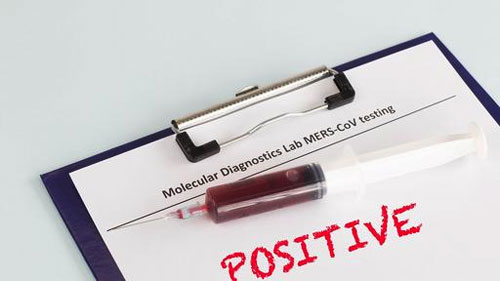Flawed COVID-19 testing: About half of all antibody test results are inaccurate, according to the CDC
The market is being flooded with blood tests designed to check for coronavirus antibodies. Naturally, many people think it’s a good idea to take an antibody test to determine if they were exposed to the virus (and if they have immunity). Of course, others want the test to know if it’s “safe” to go back to work or whether they need to still be diligent in protecting themselves from the virus. However, new evidence shows we shouldn’t bet our health on an antibody test.

There’s currently no set standards from the U.S. Food and Drug Administration (FDA) on these types of tests, but even an antibody test that comes up to the government’s informal standards may be inaccurate. In fact, according to recent reports and warnings from the U.S. Centers for Disease Control and Prevention (CDC), test results for half of coronavirus antibody tests are inaccurate.
Bottom line: If you had an antibody test and you think you have immunity against coronavirus – think again!
Antibody test results are wrong more frequently than expected
Both CBS and NPR have reported that antibody test results are wrong a lot more often than you’d like to think. Even tests that say they’re 90% accurate often perform below that level, giving people false positives and false security. This means if you have one of these tests, you likely shouldn’t base your plans on the results.
Why are tests often wrong? The validity of an antibody test doesn’t just depend on technology, but also on how common coronavirus is in the population that’s being sampled.
While it might sound strange, scientists say that these tests are more likely to be wrong in populations who’ve had little exposure to COVID-19. It’s not the fault of the test’s technology, but a result of statistics.
Get this: according to the CDC, “in a population where the prevalence is 5%, a test with 90% sensitivity and 95% specificity will yield a positive predictive value of 49%” In other words, the CDC goes on to state on its web site, “less than half of those testing positive will truly have antibodies.” And, this is what we’re supposed to use to decide if it’s “safe” to go back into society?!
The real tragedy is how top infectious disease “health experts” continue to ignore the many natural (non-toxic) ways to support a strong, healthy immune system. Our ultimate defense against bacterial and viral infections.
We don’t even know if the presence of antibodies means you’re immune
Beyond the fact that half of antibody test results could be inaccurate, we don’t even know yet if having coronavirus antibodies means you have immunity. In other diseases, people generally have a period of immunity after they recover from an illness. But scientists have yet to prove that with COVID-19.
Even if you have a positive result – which could be wrong – it’s not safe to assume that you’re immune to the coronavirus. This means that we need to continue to be diligent in the fight against the virus, practicing preventive measures by eating a healthy (organic) diet, stay well hydrated, maintain good sleep habits and take high-quality nutritional supplements to support the immune system, like vitamin C and D.
yogaesoteric
September 15, 2020
